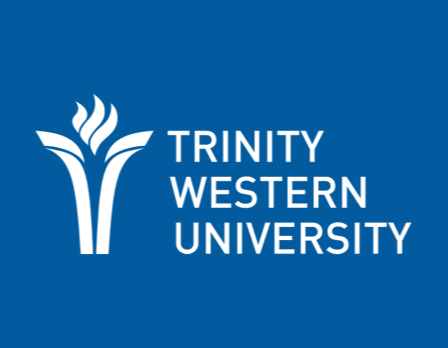“The small cohort and rich collaborative environment prepared me for leadership.” – Edward Temple, MA TESOL 2005, now Director of Philanthropy for Alberta
Trinity Western University (TWU) has received seven consecutive A+ rankings for Quality of Teaching and Learning—which are widely recognized as a benchmark for quality—on top of currently holding three Canada Research Chairs, and claiming national championships in CIS Sports.
Ultimately, TWU prides itself on its ability to change lives through the development of the whole person, taking a Christ-centred approach to its world-leading education. Through a comprehensive portfolio of undergraduate, graduate and adult-degree completion programs, TWU helps cultivate the competent leaders of tomorrow, equipped with the confidence and character needed to provoke meaningful, positive change.

“Trinity Western University is a unique, Canadian advanced education community,” says Bob Kuhn, President of TWU. “It is a Christian university, with a mission and core values that reflect a high calling that engages the heart and soul, not just the head,” he adds.
As one of 19 private universities in the Canadian university system, it’s undeniable that TWU students reap the benefits of the private higher education and everything this structure represents.
The fundamental difference between public colleges and private universities owes to the way they are funded; from as early on as the 1800s, the majority of the region’s public higher education providers have been subsidized by state governments, who to this day continue to cover the daily running costs of these institutions. On the other side of the fence sits the privately-funded college, whose operation does not rely on any state capital. Instead, these schools are financed solely by tuition fees and private contributions.
As a result of this, the cost of a privately-funded Canadian degree will generally be higher than one from a public institution – but the return on investment is deemed considerably higher.

As Brian Hutchinson wrote for the National Post, private universities are “capable of providing what most public universities in Canada cannot: creative, high-intensity curricula; very low teacher-student ratios; small class sizes and flexible scheduling; instructors who are committed to teaching, rather than to their own research” and “a positive atmosphere devoid of faculty-level sniping and politicking”.
The small and inclusive size of private institutions like TWU, home to a tight-knit community of just 4,000 students, presents the obvious advantage of much smaller class sizes – with an average class size of just 27 students, TWU students have access to one-to-one attention from the school’s prestigious faculty. And as a large number of studies, such as The Effectiveness of Class Size Reduction conducted by William J. Mathis point out, small class sizes are directly and conclusively related to higher academic achievement.
Another major benefit of the private institution is their provision of highly-specialized academic majors. While public universities generally supply a broader selection of degrees, classes can reach numbers as large as 200 students. So while they may be able to accommodate a greater range of graduate aspirations, students often find themselves lost among their lecture room peers, devoid of direct contact from their teachers for the majority of their degree program.
The private college, on the other hand, tends to be much more technical and specialized. TWU, for example, supplies 43 undergraduate majors and 19 graduate programs, allowing 4,000 students to nurture their unique talents each and every year. TWU represents the prime example of an elite Liberal Arts curriculum, granting students the tools and resources to be thinkers, influencers and leaders within an increasingly globalized world.

TWU’s warm, welcoming environment and intimate class sizes mean students can really make the most of their teacher’s experience and expertise. On top of this, a core curriculum based in the Liberal Arts means all students can pursue a diverse range of courses in history, English, philosophy, religious studies, social science, natural science and human kinetics. Not only does this broad and interdisciplinary exposure allow students to develop the critical thinking and adaptation skills required by a rapidly changing world, it also opens doors of opportunity within any sector on a global scale, and so significantly boosts the overall Return on Investment for all students that are enrolled.
“…[TWU] provides a robust education, uncompromising in its excellence; an opportunity to be part of a purpose-driven, transformational experience, discovering the heart and its passion, and a launching pad for graduates to go out and impact a needy world for good,” President Kuhn concludes.
Follow Trinity Western University on Facebook, Twitter, Instagram, YouTube and LinkedIn











